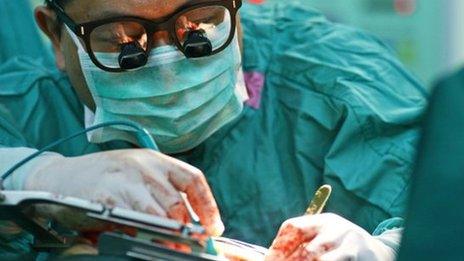Royal College of Surgeons urges waiting lists priority
- Published
Tim Havard said there needs to be more critical care beds to stop operations being cancelled
The number of patients waiting for treatment in Wales is equivalent to the population of Cardiff, it is claimed.
Waiting times are "unacceptably high" and must be top priority, the Royal College of Surgeons (RCS) said in a "manifesto" ahead of May's assembly election.
The RCS says almost 450,000 patients are waiting for treatment - 10% higher than three years ago.
But the Welsh government said waiting times have been cut since devolution.
Tim Havard, RCS director and a consultant general surgeon, said people are living longer and the NHS is treating more patients than ever before, which "must be celebrated".
But he said much more needs to be done to tackle deteriorating waiting times, which could have a "huge impact on individual patients".
"The equivalent of one-in-seven Welsh people are awaiting treatment and there is no sign of this improving," he said.
"The 26 and 36 week planned surgery targets are not being met. Instances of patients waiting over a year for knee surgery should not be tolerated."
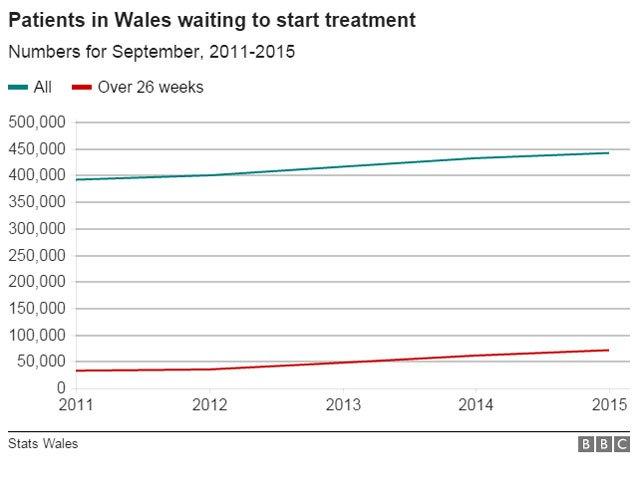
Mr Havard said despite initiatives, demand continued to grow.
"Many of the causes of high waiting times are complex and will not be solved overnight, but the focus given to tackling high waiting times in heart surgery demonstrates the NHS can improve access when this is made a priority," he added.
The RCS wants all parties to prioritise tackling waiting lists in their election manifestos.
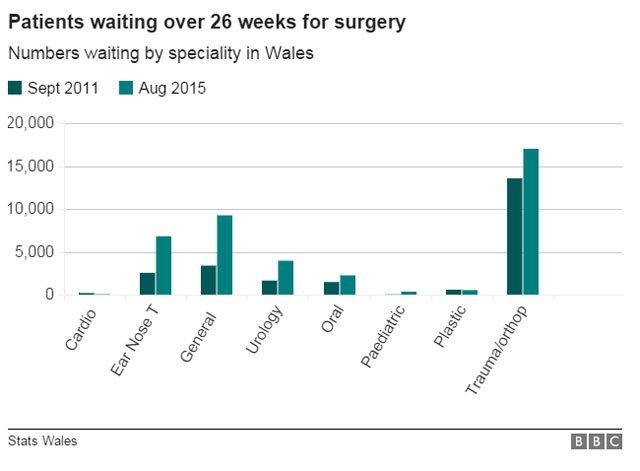
The surgeons' organisation had warned back in July 2013 that cardiac patients were dying waiting for surgery in Cardiff and the Vale.
At the time, 279 patients were waiting longer than the six-month target. Now, only around 42 patients have long waits.
Heart patients from south and west Wales were treated in hospitals in London, Birmingham and at a private hospital in Bristol, to cut the backlog.
Mr Havard also told BBC Wales that operations were being cancelled on a weekly basis, because of the lack of critical care beds.
A recent report for the Welsh government shows Wales has the lowest number of critical care beds in Europe.

Consultant plastic surgeon Amar Ghattaura and patient Louise Jackson talk about groundbreaking lymphoedema treatment now available on the NHS in Wales on a regular basis
Analysis by Owain Clarke, BBC Wales health correspondent.
If patients face delays before surgery not only do they spend longer in pain but their health can deteriorate meaning more risks
The RCS is concerned the problem is being made worse by too many scheduled operations, even major ones, having to be postponed at the last moment because intensive care beds are not available.
A lot been achieved in reducing delays in cardiac surgery, but the RCS argues "short term" solutions are no longer adequate - and in my view that is a clear warning to politicians of all parties.
Some specialist hospital services in Wales - the surgeons argue - are spread too thinly and are close to collapse - yet the RCS thinks politicians have been unable or unwilling to make the case for change.

The RCS in its State of Surgery report also called for:
Improvements in emergency care have been prioritised but there is a "clear case for service reconfiguration" and the pace of change has been too slow
A dramatic improvement in publishing data, including surgical outcomes, so the NHS can better understand where improvements are needed
A much clearer system of inspection and "external challenge" of the NHS in Wales
A review to see what the NHS can do to support the uptake of innovation and new techniques
A Welsh government spokesman said: "We are pleased the Royal College's report recognises people in Wales are living longer thanks to the care they receive from the Welsh NHS, which is treating more patients than ever before.
"This government's top priority is the NHS. Since devolution, waiting times have been cut dramatically. Thanks to our record level of investment in the NHS, today, eight out of 10 patients are waiting less than 26 weeks for treatment, while the average wait at the end of September was just under 11 weeks."
But the spokesman said an ageing population and "people's lifestyle choices" contribute "significant additional demands" on the NHS.
"We recognise that waiting times in Wales are too long at present. To tackle this, we have launched the planned care programme to transform the way that services are delivered. A series of plans, designed by clinicians, will help to deliver sustainable services and improve patient experience to ensure patients are seen in the right place, at the right time, by the right person."
The Welsh Conservatives' Shadow Health Minister Darren Millar said: "This is yet more evidence that Welsh patients are getting a raw deal.
"In England, just 6% of the population is on a waiting list. Here, it's 15% - one in seven. That's a national scandal."
He added: "Labour ministers need to get a grip and improve performance so that patients are seen within a timely fashion."
- Published8 October 2015
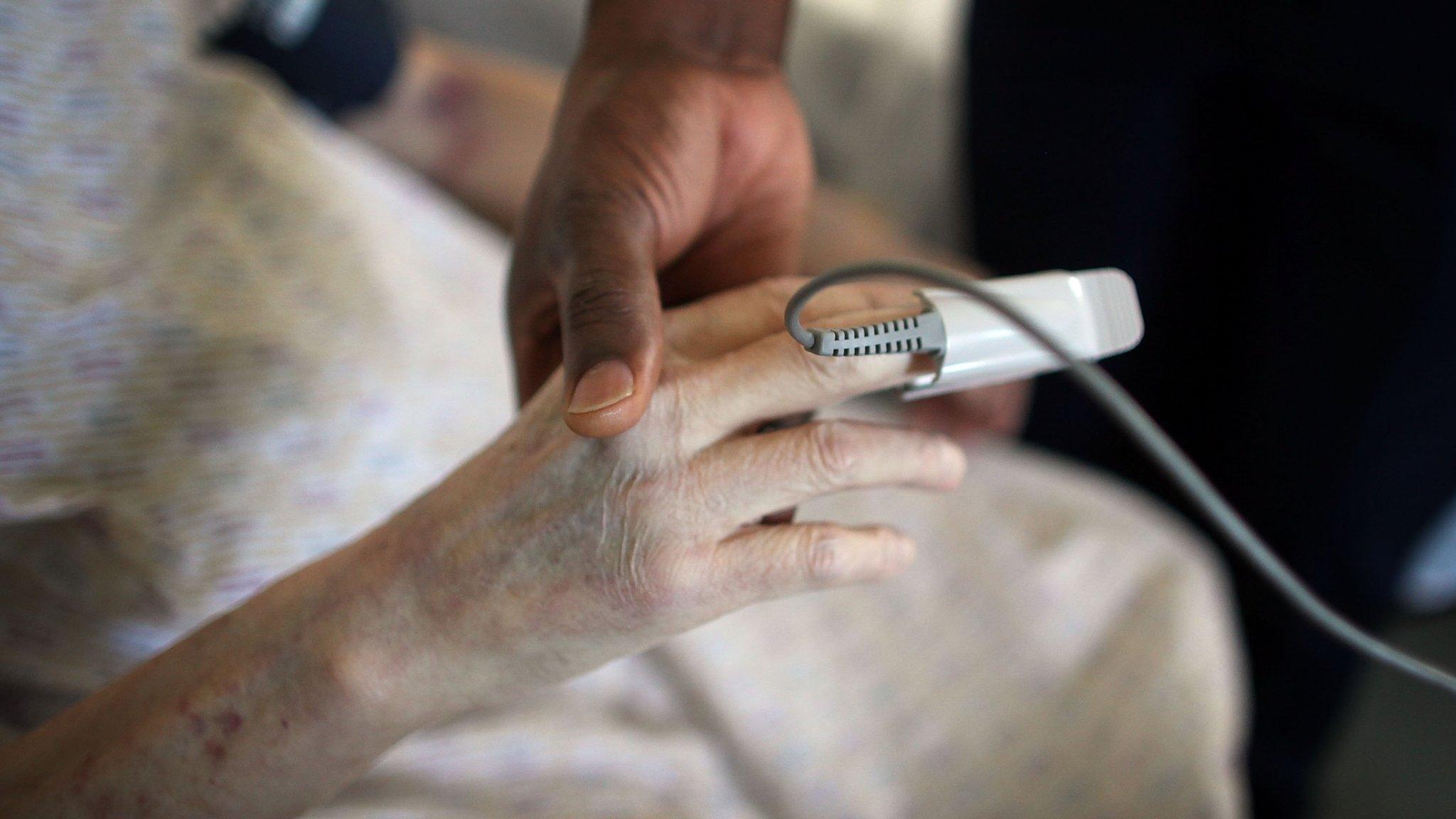
- Published16 November 2015
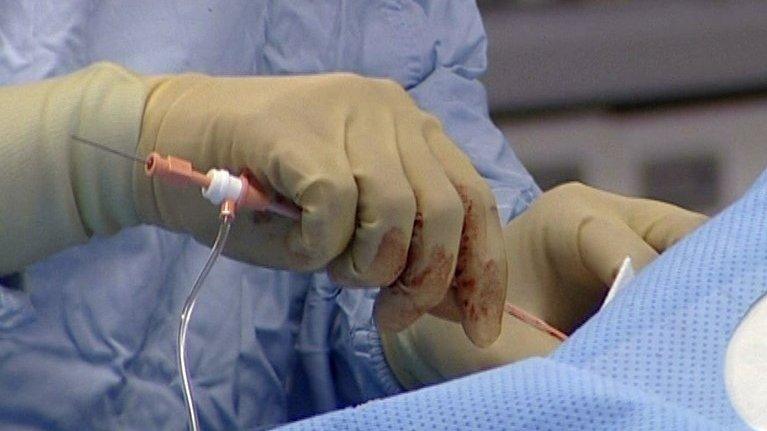
- Published22 September 2015
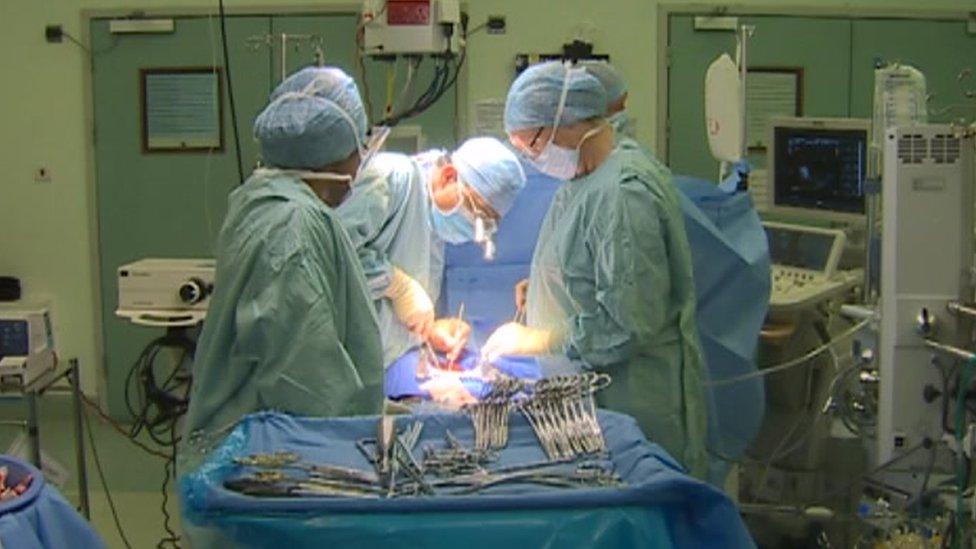
- Published30 May 2014
